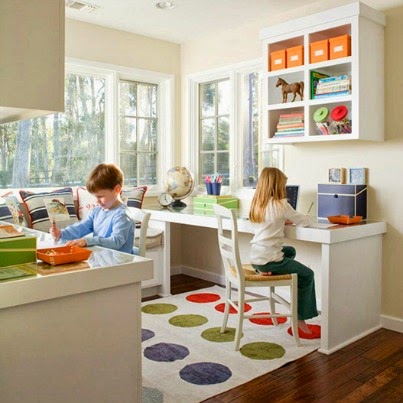Is your child easily distracted? A constant daydreamer? Just plain unfocused? If you’re concerned about your student’s ability to concentrate when it matters most--at school or during homework time--don’t wait to intervene. Luckily, there are many simple things you can do to help your child become a more focused and attentive student who is capable of handling challenging homework and school assignments. Here are six tips to support your child at home:
Evaluate the basics: sleep and exercise. Children who do not get sufficient sleep each night may face a variety of problems, including an inability to focus. According to the National Sleep Foundation, adolescents ages 10-17 years old need 8.5-9.25 hours of sleep each night. Children ages 5-10 need 10-11 hours. It’s also important for children to get plenty of exercise, another important factor in good sleep.
Break down tasks into chunks. Many children get overwhelmed with larger projects or a lot of homework, causing them to become sidetracked when diving in. Teach your child to break down assignments into manageable parts and have him or her see each part through to completion. For example, if a student needs to read a book and write a report on it by Friday, write down the necessary steps for Monday through Thursday, and have him or her check them off as completed. Set a timer for each part to keep your child on track.
Encourage organization. Being organized minimizes opportunities for a child to procrastinate or get off task. Help your child make use of a planner to keep track of homework and other obligations and his or her daily schedule. At home, establish a routine with set times for homework, friend time, bedtime and extracurricular activities. It’s important to incorporate downtime into the schedule, too.
Take breaks. Researchers have found that children who take exercise breaks during school are more attentive and on task than those who do not. When studying, have your child take 5- and 10-minute "brain breaks" to move around or take a quick walk up and down the street.
Minimize distractions during homework. Make sure your home has a good study space. If your child studies in the kitchen, for example, make sure he or she isn’t distracted by things like a television, a younger sibling playing noisily or a parent talking on the phone. If he or she studies in a bedroom, be sure all electronics are off.
Work on task completion in day-to-day duties. At home, give your child clear direction on to-dos and make sure he or she completes each task before moving on to another. For example, when you get home from school, tell your child to wash hands and empty and put away his or her lunch box. Those tasks must be completed before moving on to anything else. As your child improves task completion (without frequent reminders), give him or her more complex, multi-step tasks. Consider a chore and rewards chart.
As always, it is important to know your student and adapt to his or her learning style and preferences. Some students might focus better during study time by playing with a small stress ball, standing or pacing around the room, or talking through concepts or problems aloud. Pay attention to your child’s needs and work with his or her teacher to accommodate those needs at home. If you are concerned that your child’s focus issues are medical in nature, talk with his or her doctor. However, if your child needs help with organization, time management, study skills and similar areas, contact Huntington. We can help your child become a more attentive, effective student.
Dr. Raymond J. Huntington and Eileen Huntington are co-founders of Huntington Learning Center, which has been helping children succeed in school for more than 30 years.










